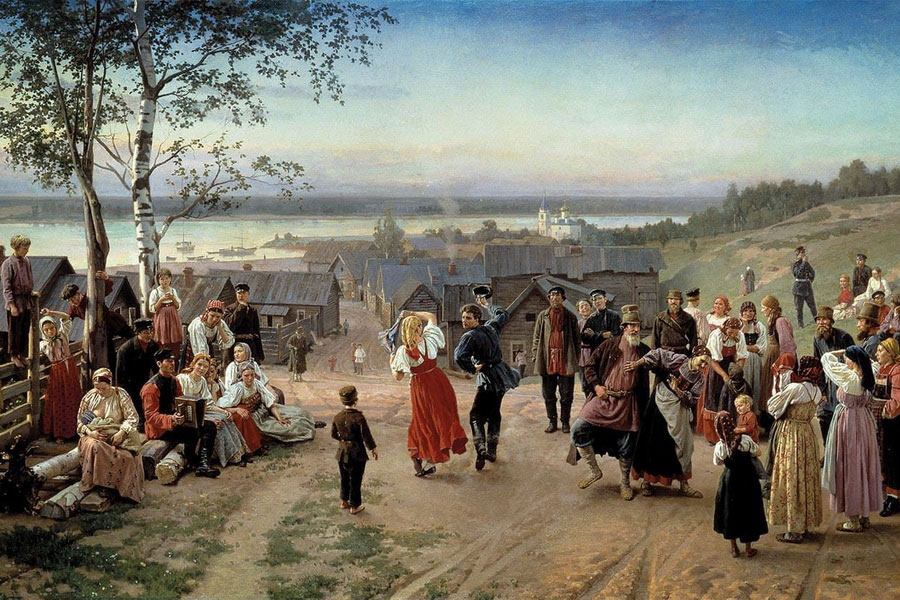
How exactly did the development of Russian culture begin? What changes has it undergone with the passing of time? How is Russian culture expressed today? To answer these questions, we first must step back in time...
The history of Russian culture can be divided into five phases:
- Culture of Ancient Russia — In the 10th century, Kievan Rus came under the influence of the Byzantine Empire. The advent of Christianity had a major influence on the local people’s way of life, and this was reflected in the development of architecture, traditions, and literature. After the Mongol invasion, the Byzantine culture began to lose ground and part of the legacy of the previous period was lost forever. The new administrative system was based on principles that differed from Western European ones.
- Russian culture in the 13th to 17th centuries — This phase in the development of Russian culture is referred to as the period of Muscovite Russia. The territory, which for many centuries was fragmented, merged into a single state with its centre in Muscovy. During this period the Moscow Kremlin was built and the painting of churches with frescoes revived. Painters again turned to Byzantine culture and formed a school of Russian icon painting. One of the most famous painters of frescoes and icons in this period was Andrei Rublev.
- Culture of Imperial Russia — Peter the Great’s reforms opened Russia to Western European influences. The Age of Enlightenment highlighted the value of human beings and the need for education and holistic development. A lively debate began between supporters of Slavic culture and fans of the Western lifestyle. Together they searched for a balance between the two cultures and determined how Russia should develop while maintaining its national identity and traditional values. During this period the foundations of the Russian literary language were formed, and the great Russian classics were written. With a focus on preserving history and educating people, museums began to develop.
- Russian culture as part of the Soviet Union — Under the influence of Soviet power, Russian culture changed significantly. With the advent of the Bolsheviks, many creative and scientific figures of tsarist Russia emigrated to Europe. Repression claimed the lives of prominent members of the intelligentsia. Soviet power resolutely got rid of the remnants of the past, destroying many artefacts of church life. At the same time, the Communists worked to eliminate illiteracy, making education free and compulsory for everyone. A new intellectual and creative elite emerged, literary classics of the Soviet era appeared, and theatre, cinema, and other forms of art developed.
- Russian culture in modern times — After the collapse of the Soviet Union, financial support for many research institutes and cultural institutions declined. People moved into commercial areas and social inequality increased. The vacuum that arose as a result of the crisis of the Communist system was filled by Western values – in particular, individualism. Many people turned to religion, the Orthodox Church began to revive, and new churches were built. Television and cinema have had a great influence on the minds of people and, as in other countries, electronic media are now replacing print media.

